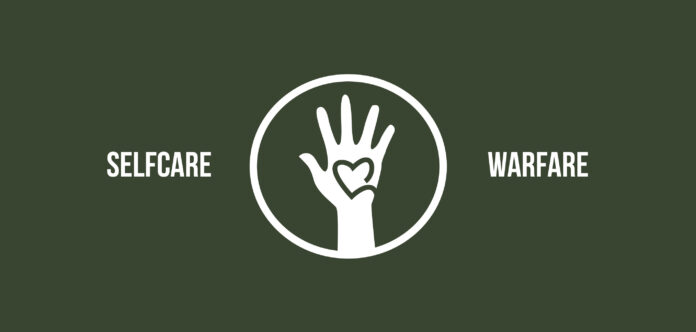One of the more pervasive and often not thought about forms of oppressions that has gained a large amount of attention recently is ableism. Ableism is a form of oppression and prejudice that discriminates against people with disabilities, both visible and invisible.
But first, what is a disability? According to the Americans with Disabilities Act of 1990, a disability is a condition that “substantially limits one or more major life activities.” The act highlights the fact that physical and mental impairments can affect one’s ability to carry on with their daily lives. Quite often, able-bodied citizens think of disability as something that one can see. We think of what disability studies scholars and activists call visible disabilities, which are those conditions that are easily visible by onlookers. Losing the ability to walk and having to use a wheelchair is one example of this. There are however invisible disabilities, which are disabilities such as mental illnesses, chronic pain, learning differences, etc. that are not obvious to those looking at the person with the disability but nonetheless affect their daily activities.
Before I continue writing, I want to acknowledge the fact that I am writing about ableism as an able-bodied individual; thus, I do not know ableism firsthand (check your privilege first).
Back to the topic of ableism and self-care. As with the last article, I’m going to try and deconstruct ableist thoughts that we can see both in ourselves and in our daily lives.
Living in Northern California for however many years, you’ve probably heard very interesting descriptions of the weather. At least in my experience at Vanden High in Fairfield, Calif. (home to that giant Jelly Belly Factory), we often joked about how the weather was “bipolar.” We whined and groaned about how moody Mother Nature (this was way before I realised that gendering nature as mother is wrong, and that this statement itself is misogynistic) would be throughout the day/week/month/year/decade/century/millenium. One day it would be extremely windy and cold, and the next we would swear that it was the hottest day ever. We’d end our complaints with, “Why is the weather so bipolar up here?” and move onward with our conversations. However, looking back and even thinking of conversations about the ever-indecisive phenomena of weather, I realize that our usage of “bipolar” was ableist because of the relationship between the word bipolar and bipolar disorder.
You see, bipolar disorder, according to the National Institute of Mental Health, is a mental illness characterized by “severe shifts in mood, energy, activity levels and the ability to carry out day-to-day tasks.” These shifts are extremely different from the moodswings that those without the disorder experience. Rather than those mad-one-minute-and-happy-another sort of shifts, these mood-changes are debilitating shifts that limit one’s ability to function. They are periods of either hypomania, which is characterized by “excessive happiness, sudden changes from being joyful to being irritable, angry and hostile, [and] restlessness;” or depression, characterized by “sadness, loss of energy, [and] irritability.”
Acknowledging the fact that the word “bipolar” does indeed mean having two extremities or polarities, by calling the weather “bipolar” or even by describing someone who is simply moody as “bipolar,” we make light of the condition that many people suffer from. In using the term “bipolar” or any mental illness such as obsessive compulsive disorder (e.g. “Can you please do your dishes? I’m really OCD about that”) we normalize the condition and forget entirely the debilitating effect that it can have on those who are affected. We become desensitized to the severity of mental illness. We contribute to the stigmatization of disability, particularly mental illness, that is part of our contemporary culture. By making light of mental illness and disability in general, we take part in the effective shaming of these disabilities. It becomes shameful to seek help. It becomes difficult for those with disabilities to feel the love and care that they deserve, because we invalidate their experiences. We transform disability from something that affects human beings into an inconvenience.
In terms of taking care of ourselves and unlearning oppressive behaviours, in this case ableist logic, it is necessary for those of us as able-bodied individuals to be careful with our words if we are to be allies with disabled individuals. Rather than using “bipolar,” we can expand our vocabularies and use other words like, “temperamental,” “volatile” or “erratic.” Rather than using “retarded,” we can use words like “senseless,” “illogical” or “absurd.” Rather than using “OCD,” we can say “particular,” “bothered,” or that we “prefer things a certain way.”
And it’s necessary to think beyond only these words. We need to shift the ways we frame disabilities, visible or invisible, in our own minds. We need to Google search and read books, blog posts, academic articles and narratives about disability ourselves. We need to self-educate because it is not the duty of the under-privileged to educate those of privilege. We need to be receptive to critique from marginalized communities.
We need to reflect critically and move to work harder to build a more compassionate self and a more loving community.
See also the following articles:
Why You Shouldn’t Use Mental Illness as a Metaphor
“Crazy” Talk: Why Having a Mental Illness Shouldn’t Be an Insult
Contact GILBERT GAMMAD at gdgammad@ucdavis.edu.
Graphic by CA Aggie Graphic Design Team.




